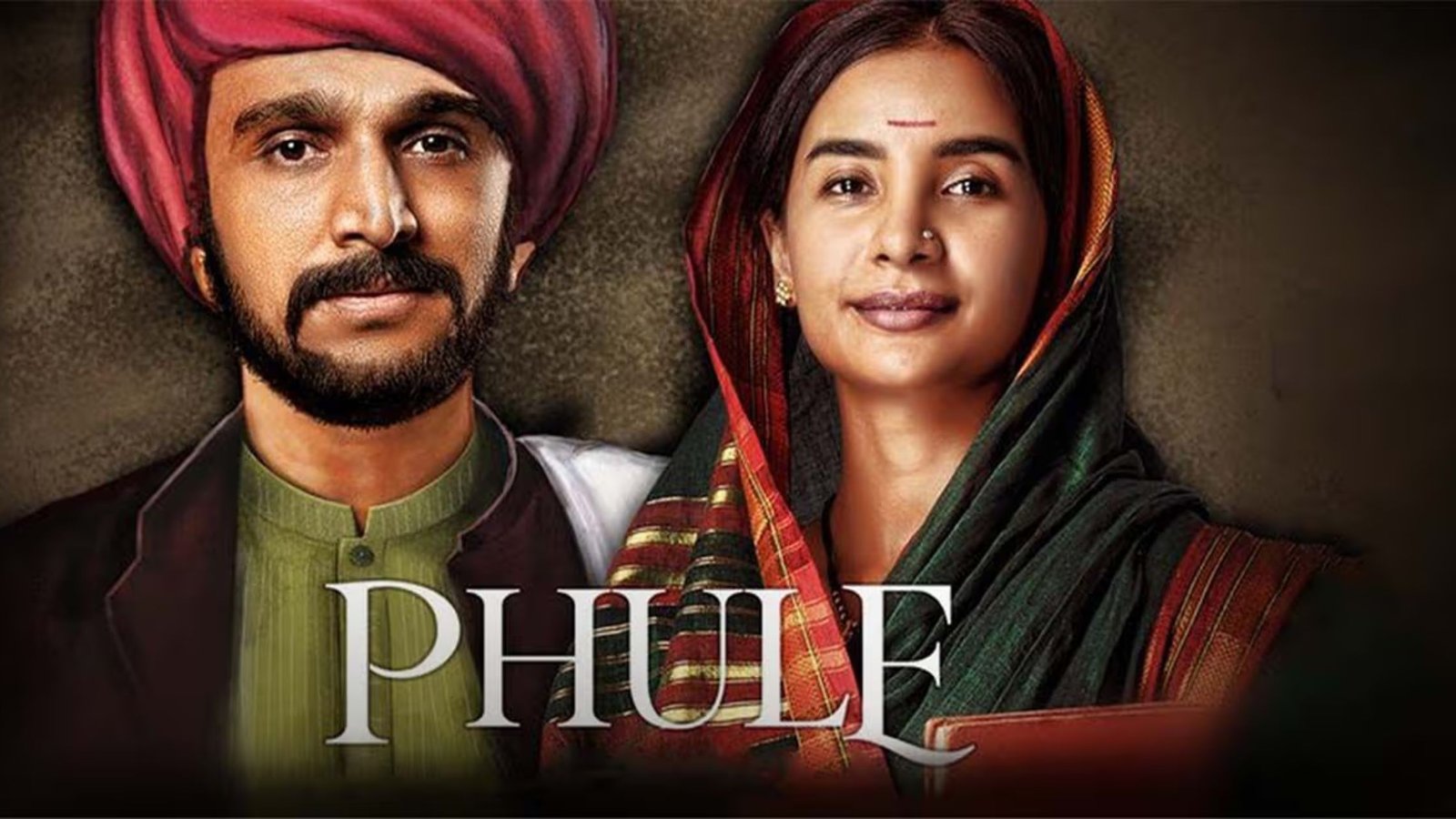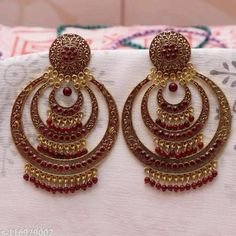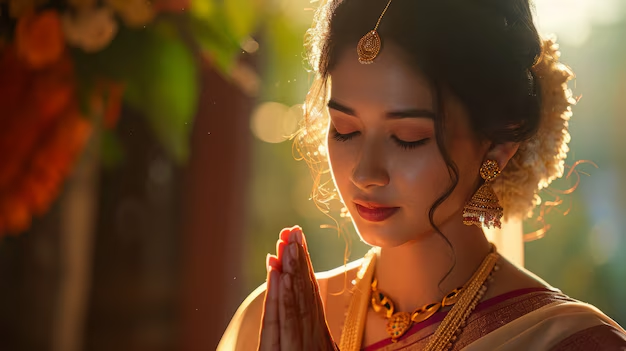In this Phule movie review, we delve into a film that seeks to honour two of India’s most pioneering social reformers—Jyotiba Phule and Savitribai Phule—but ends up undercutting its impact with an overstuffed screenplay and excessive exposition.
Set against the rigid socio-political backdrop of 19th-century Maharashtra, Phule tells the story of a couple far ahead of their time. In a world where girls were shackled by child marriage and caste oppression, Jyotiba and Savitribai lit a spark of revolution through education and equality. The film opens with a quietly powerful scene: a young Savitri, learning the alphabet from her older husband, marking the beginning of her transformation from a child bride to India’s first female teacher.

Directed by Ananth Narayan Mahadevan, the film has its heart in the right place. Every frame reverberates with historical relevance—from casteist violence in Pune’s streets to the powerful orations delivered by Savitribai in defiance of tradition. But unfortunately, Phule often tells more than it shows.
The Strengths: Performances That Command Respect
The casting is spot-on. Pratik Gandhi brings gravitas and sincerity to Jyotiba’s character, portraying a man both deeply empathetic and intellectually rebellious. Patralekha, as Savitribai, delivers a fiery performance, especially in scenes where she confronts societal patriarchy with both poise and power. Her impassioned speeches form the emotional core of the film.
Vinay Pathak and Sushil Pandey lend depth as Jyotiba’s conservative family members, mirroring the inner resistance every revolutionary must overcome at home. A special mention goes to Darsheel Safary, whose restrained portrayal of the Phules’ adopted son adds a quiet strength to the narrative.
Joy Sengupta, in the role of the self-righteous Brahmin antagonist, is all fury and righteousness—a potent symbol of the entrenched orthodoxy that the Phules battled.

The Weaknesses: A Film Overrun by Its Own Ambition
Unfortunately, what starts as a focused character study slowly turns into a documentary-like checklist of historical events. Within two and a half hours, the film attempts to cover everything from the 1857 Mutiny, plagues, famines, to even referencing Abraham Lincoln’s fight against slavery and the French Revolution.
These global parallels are intellectually interesting but cinematically exhausting. Instead of deepening our understanding of the Phules, they distract from it. The film often slips into lecture mode, slowing its pace and diluting its emotional impact.
Direction, Visuals & Research
There’s no doubt the film is the result of extensive research. The costumes, dialects, and settings convincingly recreate the era. But the screenplay needed sharper focus. By trying to be a sweeping history lesson, Phule forgets the power of tight, personal storytelling.
One area where the film succeeds is its subtle critique of British colonialism—not just as external rulers, but as clever manipulators of India’s own caste hierarchies. This theme is touched upon but, again, not explored deeply enough.
Read Also : The Diplomat Review: John Abraham’s Political Drama is Sincere but Struggles to Engage
Chhaava Review: Vicky Kaushal Roars in a Gripping Tribute to Chhatrapati Sambhaji Maharaj
Final Verdict
This Phule movie review concludes that while the film is undeniably important and rooted in revolutionary ideals, its cinematic voice is dulled by an overabundance of facts and insufficient emotional build-up. It’s a film to be respected more than loved.
For those unfamiliar with the legacy of Jyotiba and Savitribai Phule, this film is a valuable introduction. But for cinema lovers seeking compelling storytelling and layered character arcs, Phule may feel more like a well-meaning history lecture than a powerful cinematic experience.







